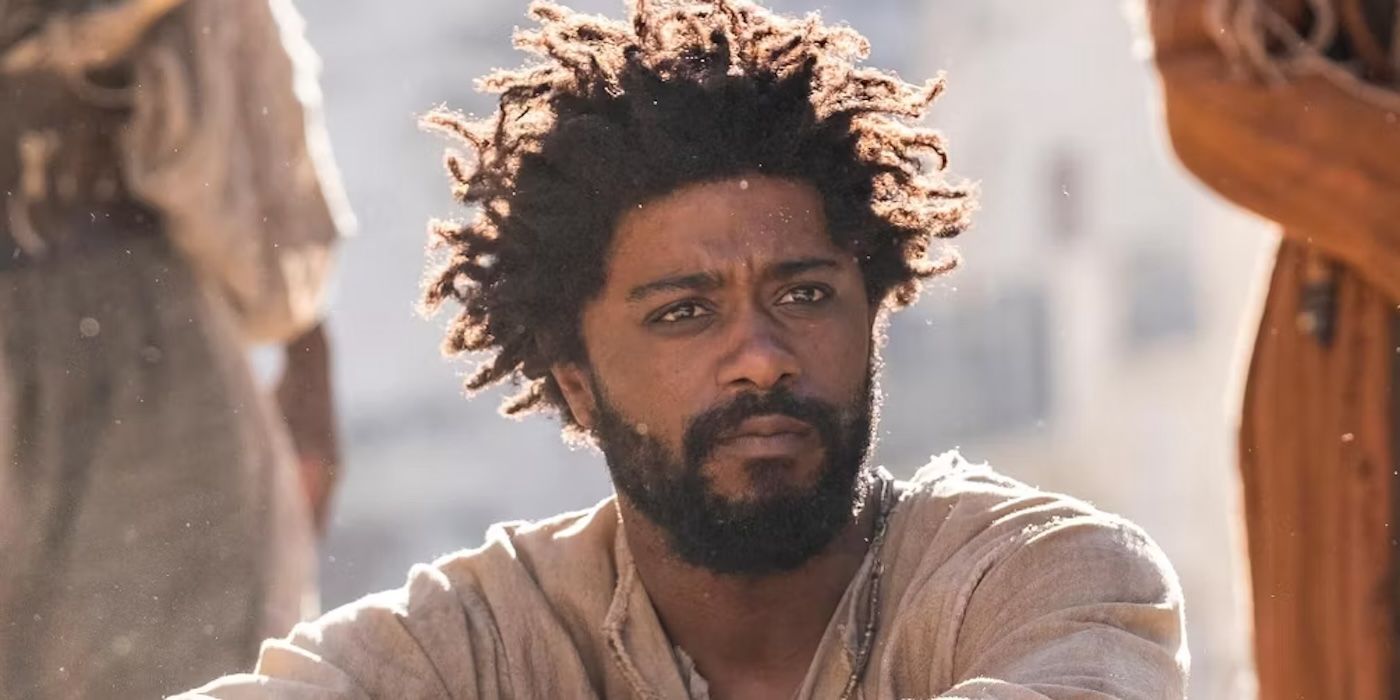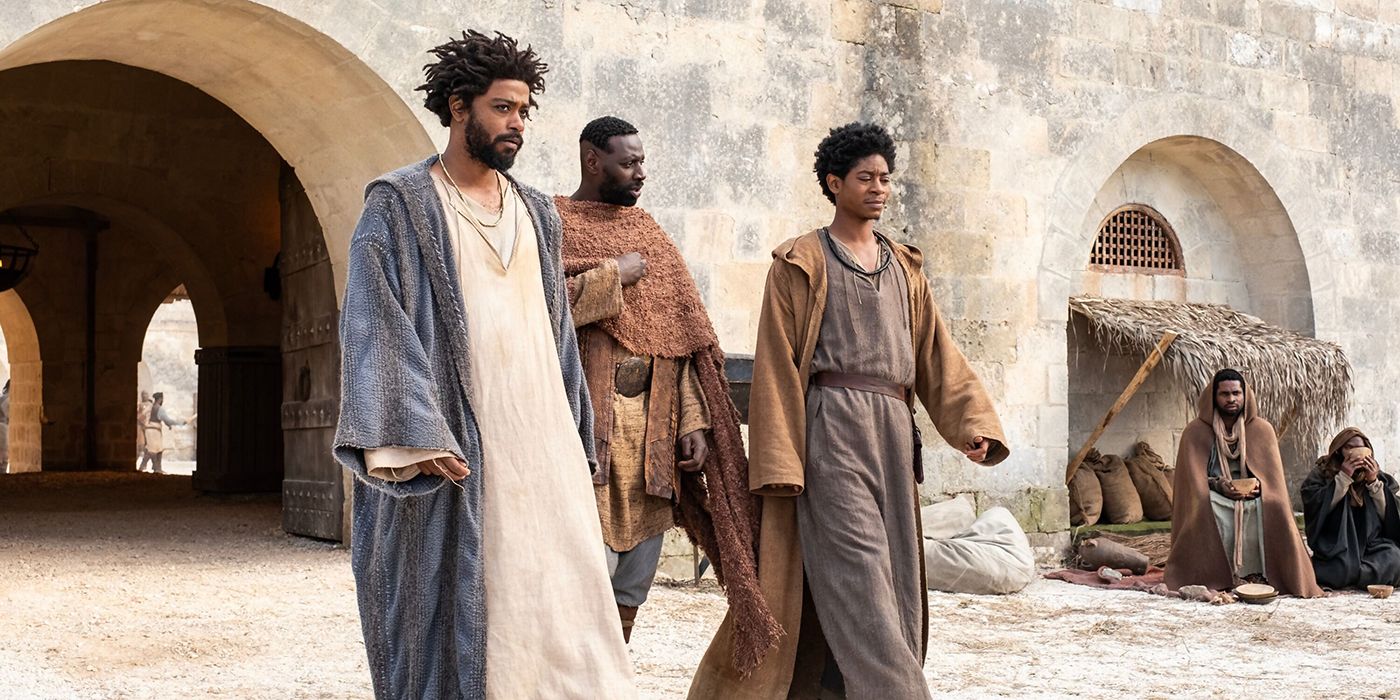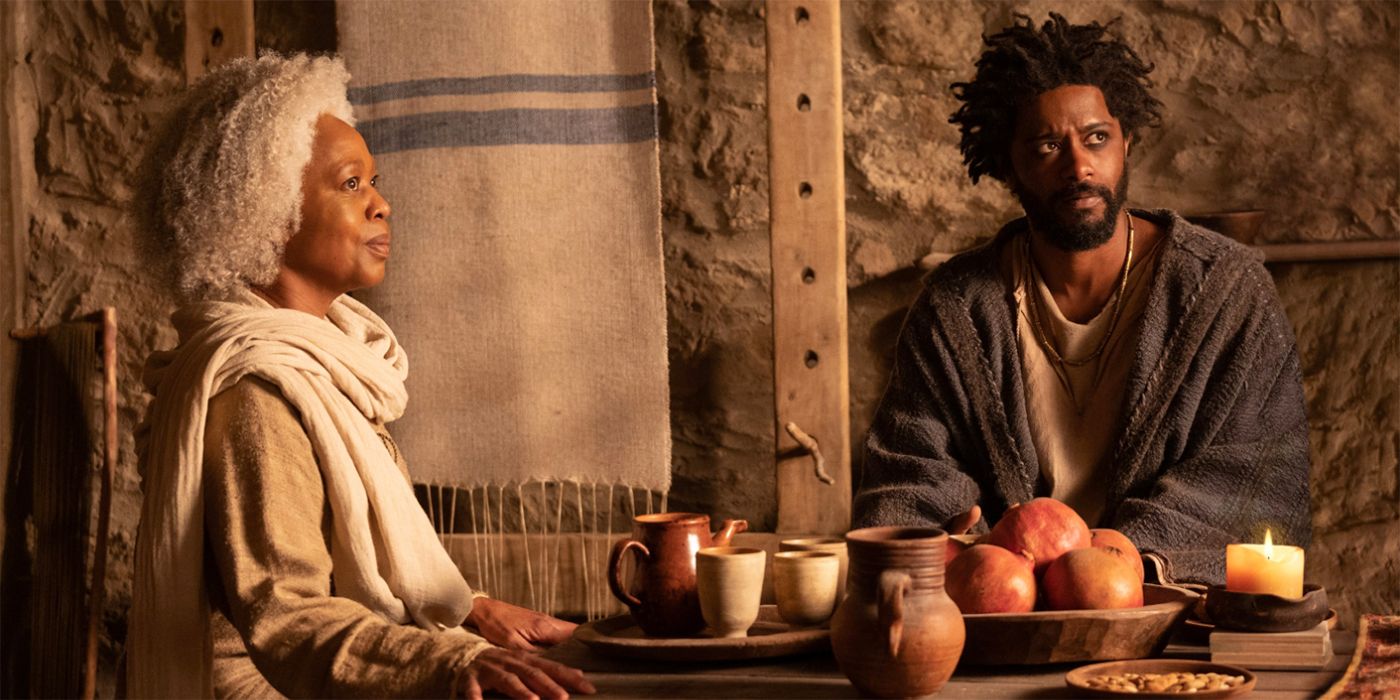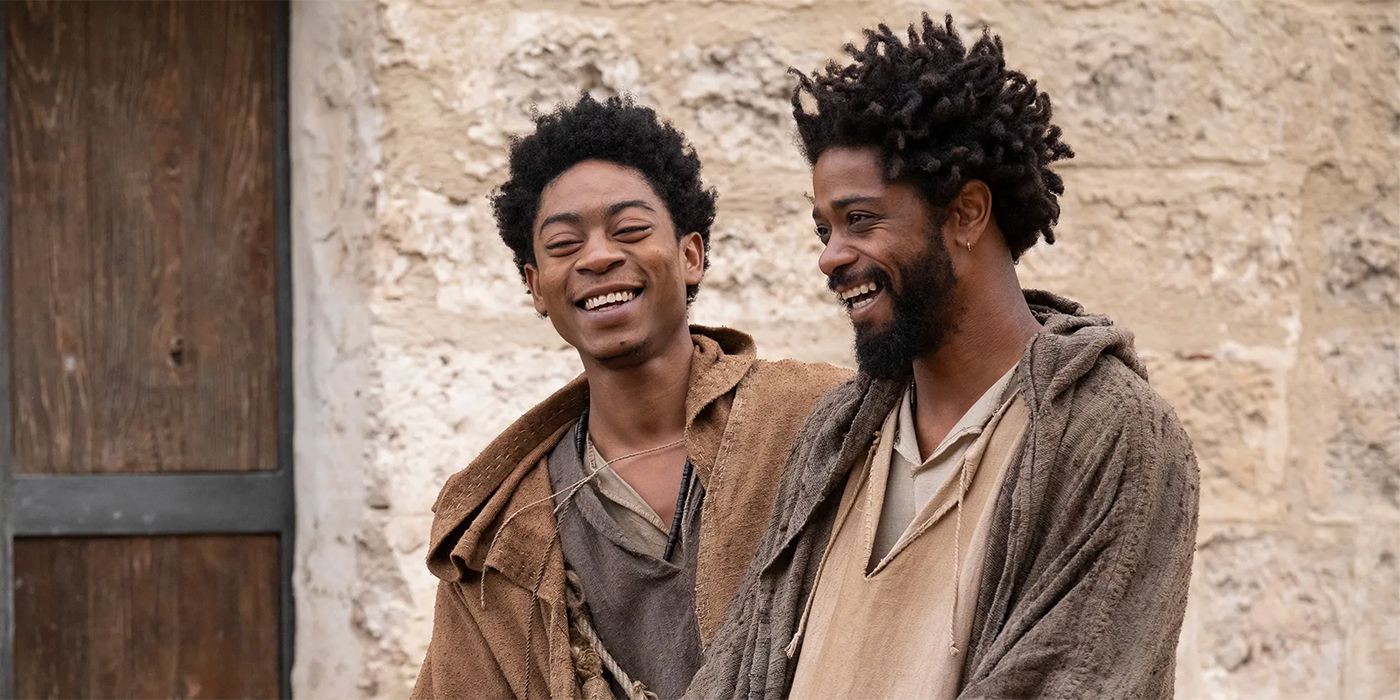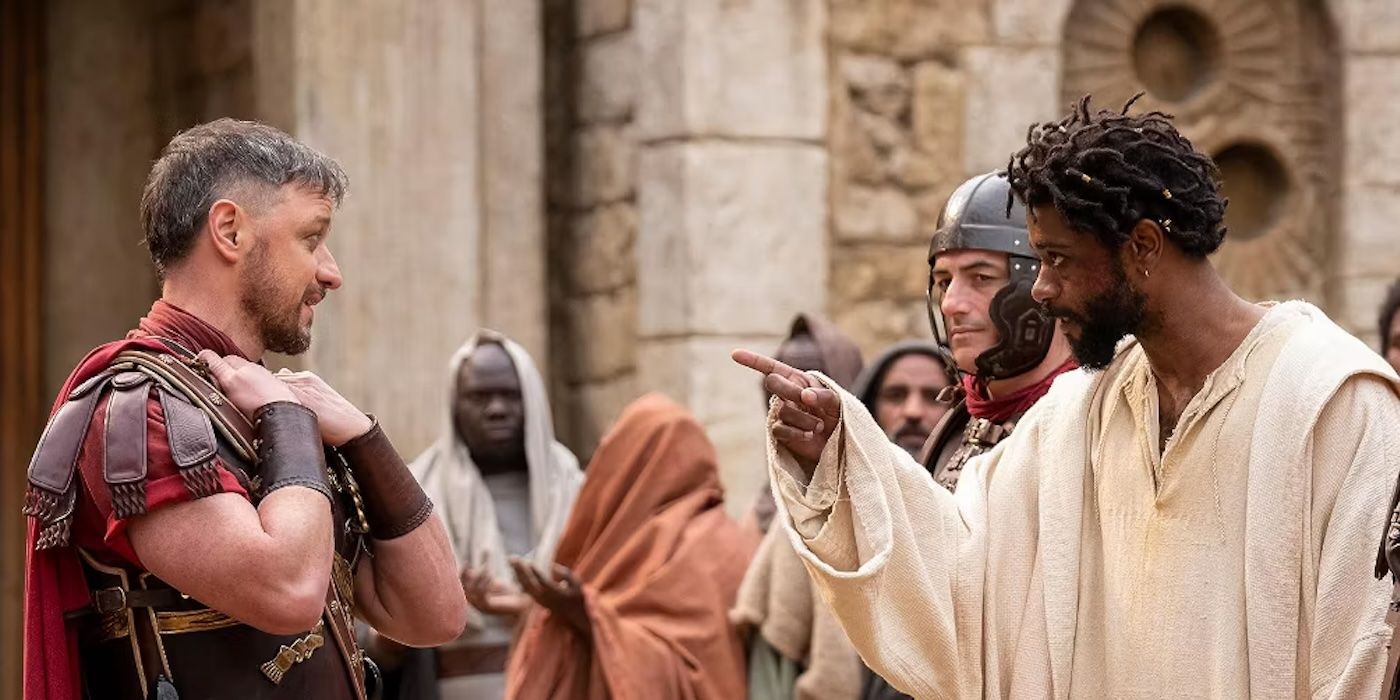
The Book of Clarence: A Bold Reimagining of Biblical Tales

Discover the bold and controversial reimagining of biblical tales in The Book of Clarence, directed by Jeymes Samuel. Explore the poignant ending, the characters, and the deeper meanings behind this unconventional narrative.
The Journey of Clarence
The Book of Clarence reimagines biblical tales in a bold and controversial manner, offering a unique perspective on familiar narratives. Directed by Jeymes Samuel, the film follows the journey of Clarence, portrayed by Lakeith Stanfield, as he embarks on a mission to prove his worth and purpose.
LaKeith Stanfield gazes into the distance in The Book of Clarence
Clarence's determination to validate his existence leads him to proclaim himself as the new messiah, a declaration that sparks opposition from various adversaries, including the Roman Empire. Alongside his best friend Elijah, played by RJ Cyler, Clarence navigates a transformative path filled with loyalty, affection, and formidable challenges.
LaKeith Stanfield, Omar Sy and RJ Cyler walk together in The Book of Clarence
The climax of Clarence's journey culminates in a sacrilegious reimagining of the crucifixion of Jesus, a bold and controversial twist that challenges traditional interpretations of biblical narratives. Through Clarence's experiences, the film delves into themes of faith, doubt, and the pursuit of purpose.
Clarence and his mother in The Book of Clarence
The Poignant Ending
The ending of The Book of Clarence unfolds with poignant and unexpected developments, offering a thought-provoking conclusion to Clarence's transformative odyssey. After establishing himself as the new messiah and winning the affection of Varinia, Clarence is confronted by adversaries seeking to challenge his claims.
anna diop & lakeith stanfield standing close together in the book of clarence
The confrontation leads to a series of dramatic events, including a miraculous display of power as Clarence walks on water, defying the expectations of those around him. Despite his confession of being a false messiah, Clarence's fate is sealed as he is ordered to face the crucifixion, a fate he shares with other false prophets.
rj cyler & lakeith stanfield laughing in the book of clarence
The conclusion of Clarence's journey raises questions about faith, redemption, and the complexities of human nature. The portrayal of Clarence's ultimate sacrifice and resurrection offers a thought-provoking reflection on the nature of belief and the pursuit of meaning.
LaKeith Stanfield points at James McAvoy in The Book of Clarence
Deeper Meanings and Interpretations
The Book of Clarence invites audiences to delve into deeper meanings and interpretations, challenging conventional assumptions about faith, morality, and the human experience. The character dynamics, including Clarence's relationship with Varinia and the loyalty of Barabbas, offer insights into themes of betrayal, compassion, and resilience.
The miraculous events portrayed in the film, such as Barabbas' survival and Clarence's ability to walk on water, provoke contemplation on the nature of divine intervention and the complexities of belief. Additionally, the portrayal of Benjamin, the beggar blessed by Jesus, raises questions about the consequences of possessing God-given gifts.
Ultimately, the reimagining of biblical narratives in The Book of Clarence challenges audiences to reconsider their perceptions of faith, destiny, and the transformative power of personal experiences. The film's unconventional approach to storytelling offers a compelling exploration of human nature and the pursuit of enlightenment.
